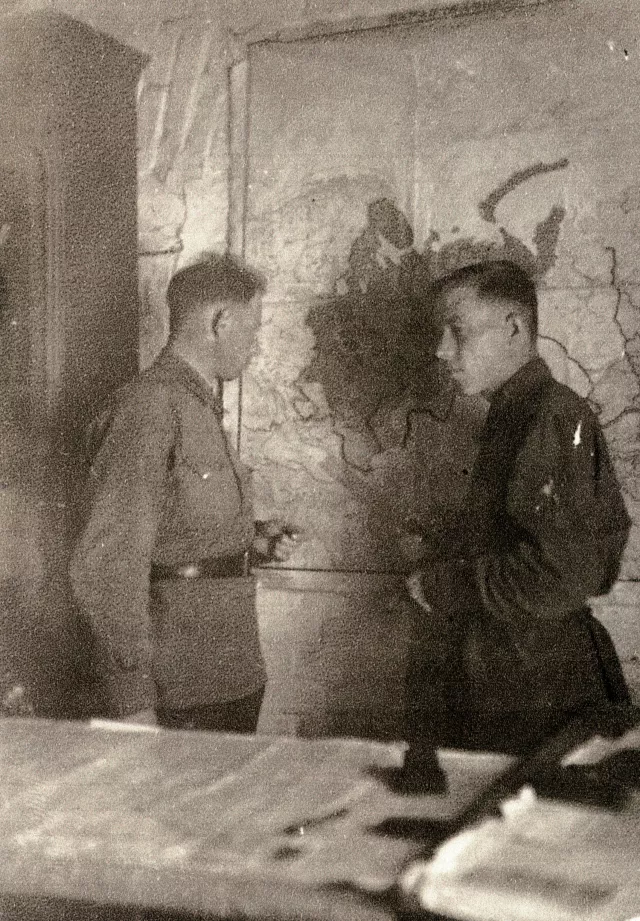This is a picture of me (on the left) at the headquarters of our regiment in Kaunas in 1941. The photo was taken by an officer. I received it after the war.
I went into the army when I was 23. I served in Tank Brigade #22, deployed in Grodno, Belarus. Our training school was training tank men for the war with Finland [the Soviet-Finnish War]. I studied there for about a month and a half. There was no typist in the brigade headquarters. I typed very well and became a typist. I served there, typing and drawing maps. I read a lot. There was a very rich collection of books, and I improved my Russian, but I forgot Yiddish, the language of my childhood.
In 1940 we 'provided assistance' to the Lithuanian people by liberating them from the oppression of world capitalism. [Editor's note: In 1942 the Baltic countries were occupied by the Soviet troops and forced to join the USSR.] I'm saying this with a bit of irony because nobody was waiting for us there. Our army entered the town of Kaunas. There were many Jewish families there, and I became friends with a Jewish family. They were very nice people. I visited them on weekends, and they treated me to Jewish food. We spoke Yiddish, although their pronunciation was a little different. Their intonations and accent were different, influenced by a different language environment. We played cards and enjoyed ourselves.
The war began on 22nd June 1941. At that time I was at the Air Force headquarters of the 11th Army. My commanding officer was on duty on 22nd June. At some point somebody called him, and he said, 'Well, son, it has begun'. This was the beginning of the war. Our headquarter stuff was hiding in the woods and towns. The only weapons we had were pistols. We also had a manual Degtiaryov machine-gun. I was a sergeant, a communications operator of the headquarters. I was a courier and had to deliver documents and orders on the bike. Once I fell into a ditch.
Grigoriy Sirotta
The Centropa Collection at USHMM
The Centropa archive has been acquired by the United States Holocaust Memorial Museum in Washington, DC.
USHMM will soon offer a Special Collections page for Centropa.
Academics please note: USHMM can provide you with original language word-for-word transcripts and high resolution photographs. All publications should be credited: "From the Centropa Collection at the United States Memorial Museum in Washington, DC". Please contact collection [at] centropa.org.











